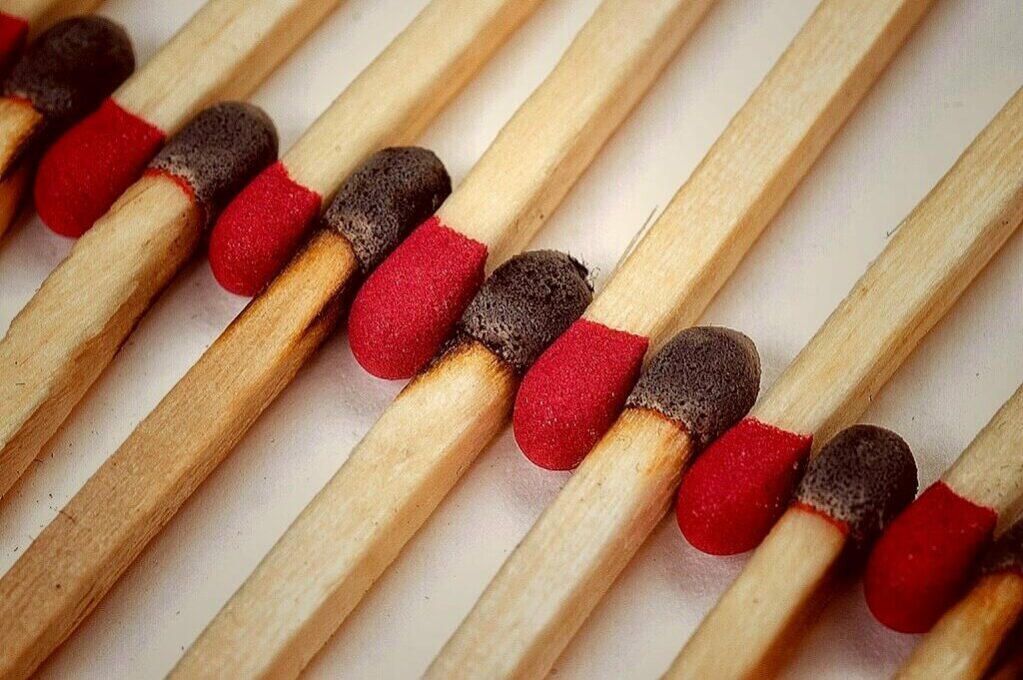Without the wife knowing, Denholm is building a miniature model of Rickmansworth, in his second garden shed. He is gluing the model together, entirely from matchsticks (and, because of the matchsticks, it is taking a long time). He filches odd half-hours, at weekends, and grabs time in early evenings, when Joan is distracted by the consolations of Judge Judy. He is trying to do it on the sly, but he must be patient, and painstaking. His pockets rattle with matchboxes, as he trudges through town early on a Sunday morning, surveying the terrain, smuggling in his overcoat sleeves the foldable plastic rulers that his father left him. The model is faithful (St. Mary’s church, Watersmeet Theatre, The Pennsylvanian, the Conservative Club, right down to the detail, for example, of buxom Jane’s sun lounger in her garden next door). Yet heights and distances can only be approximated, in most instances (he is no mathematician, and he is aware that ladders would be conspicuous in public [the church spire, for example, he suspects he has exaggerated by the equivalent of several feet]) and of course, a map is a mere cousin of the territory. Eventually he is intending to populate the model with miniature representations of its inhabitants, but he needs the nuts and bolts of its architecture bedded down beforehand, and the damned thing keeps shifting: shops and offices change names, new buildings repeatedly materialize. Denholm can’t yet decide if working on this model constitutes more art than science; he is troubled by the large proportion of guesswork involved in it. He has confided in Phil about this project (at great risk, Denholm would argue), and Phil has given the model a provisional title: Rickmansworth – An Ideal Town. Denholm stands within the dark of four wooden walls, studying the replica, illuminated only by the pink light from a lava lamp. He sinks into his thoughts like he’s floating in the Dead Sea. For a few minutes, he’s alone, contemplating his life’s masterpiece, and nobody, nobody can find him.
–
Michael Loveday‘s poems, short stories, and book reviews have been published in Ambit, Envoi, Flash: The International Short-Short Story Magazine, Iota, Magma, The North, POEM, Prole, The Rialto, Spelk, and Stand. His debut poetry pamphlet was published by HappenStance Press (2011). He lives in Bath, UK, and teaches in adult education. Visit his website for more info.
Lead image: “Macro Matchsticks” *with edits* (via Flickr user Dano Nicholson)


Intriguing read — and the line, “…a map is a mere cousin of the territory” is going to stay with me for a while — for good, I hope.